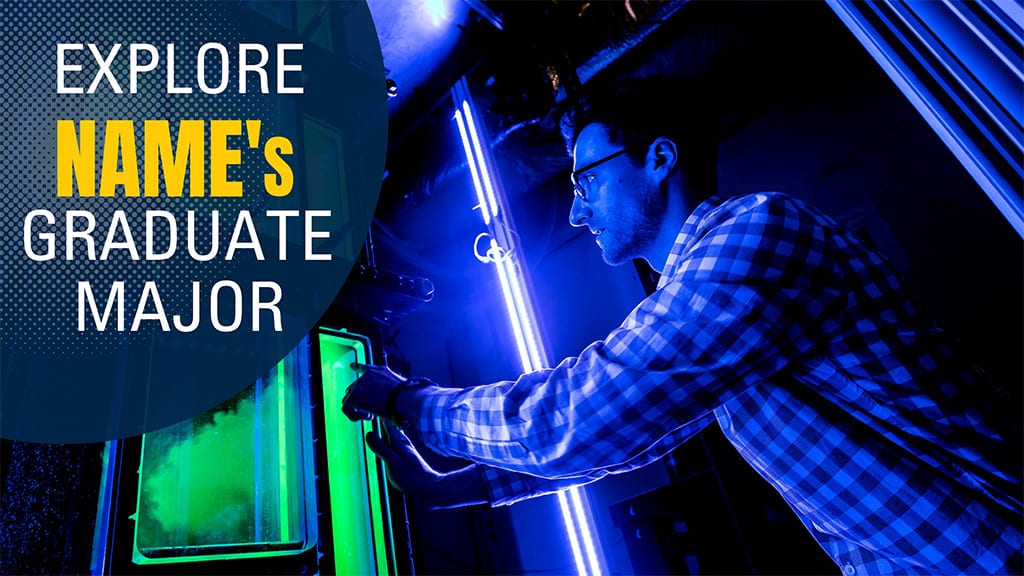Graduate Studies

CONTINUE YOUR EDUCATION AT A LEADING NAVAL ARCHITECTURE PROGRAM IN THE U.S. AND THE WORLD, TAILORING YOUR CURRICULUM TO THE WORLD’S EVER-CHANGING TECHNOLOGY AND DEMANDING NEEDS
The Department of Naval Architecture and Marine Engineering offers courses leading to a Master of Science (MS) degree and/or a Master of Science in Engineering (MSE) degree, and a Doctor of Philosophy (PhD) degree. Also available are multiple options for Dual degrees in collaboration with other programs at the university, such as a Joint MSE / MBA degree. These programs are administered through the Horace H. Rackham School of Graduate Studies.
Become your industry’s next hire
Our proud and passionate network of alumni connects current students and new graduates directly to industry and top institutions. NA&ME careers are modern, varied, and always evolving — and our graduates are the ones who shape it. The program in Naval Architecture and Marine Engineering gives engineers an opportunity to focus on emerging and growth fields. The academic focus areas consist of three major divisions as follows:
- Marine Mechanics Engineering for the marine environment requires the analysis of complex systems including their hydrodynamic characteristics, structural integrity, and dynamic responses. Marine mechanics is at the heart of these analyses and involves the study of the fundamental physics of marine systems along with the development and use of analysis tools. Whether the marine system is a ship, an offshore structure for oil and gas recovery, or an energy harvesting device, their design requires the same basic analysis tools of applied mechanics and numerical modeling.
- Marine Systems Design The naval architect’s role in advanced marine design may be one of applying the latest design methods to specific design issues or one of overall design integration and leadership of integrated product/process development teams. Naval architects may also have leading roles in the management of marine systems. The unifying philosophy of the Department’s study in this area is that of multi-discipline engineering and concurrent design from early in the design process of the performance, manufacture, and the life-cycle support of a design. Manufacturing considerations are an integral part of the design process. Marine design today is often conducted with cross-functional integrated product development teams. Specify study within this area can emphasize overall design, marine engineering, maritime systems management, ship production, or optimization methods and design under uncertainty.
- Marine Robotics and Controls Marine robots cannot use GPS since they operate underwater. Therefore, robots must use computer vision and image processing in conjunction with time-synchronized acoustic navigation for autonomously mapping their environment and navigating in it. This technology has provided the foundation for related research efforts for autonomous undersea vehicles and ground vehicles, automotive active safety situational awareness, and autonomous ship hull inspection. Development of control algorithms and strategies is an integral part of creating autonomous robots. In addition to the robot applications, there are significant activities in control system development and optimization for marine and automotive propulsion systems, fuel cells, and energy storage devices.
World-Class Facilities & university Resources
A small welcoming community dedicated to helping you pursue your research
The department is active in a wide range of research activity. Several research focus areas are listed below.
- Hydrodynamics
- Marine and Offshore Structures
- Dynamics, Controls, and Marine System Integration
- Robotics and Autonomy
- Yacht Design
- Design, Production, and Management
- Marine Renewable Energy
- Structural and Hydro-Acoustics
